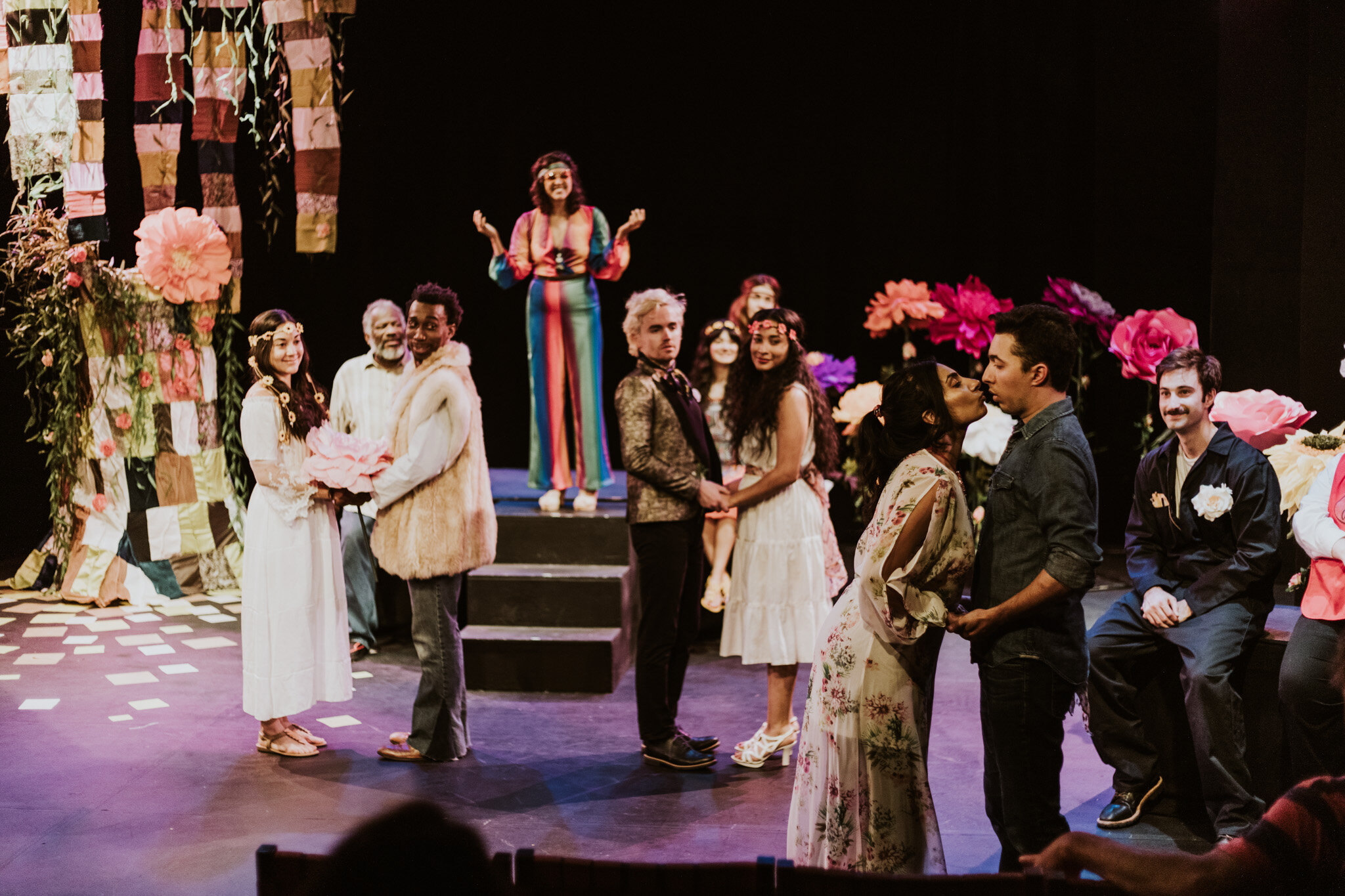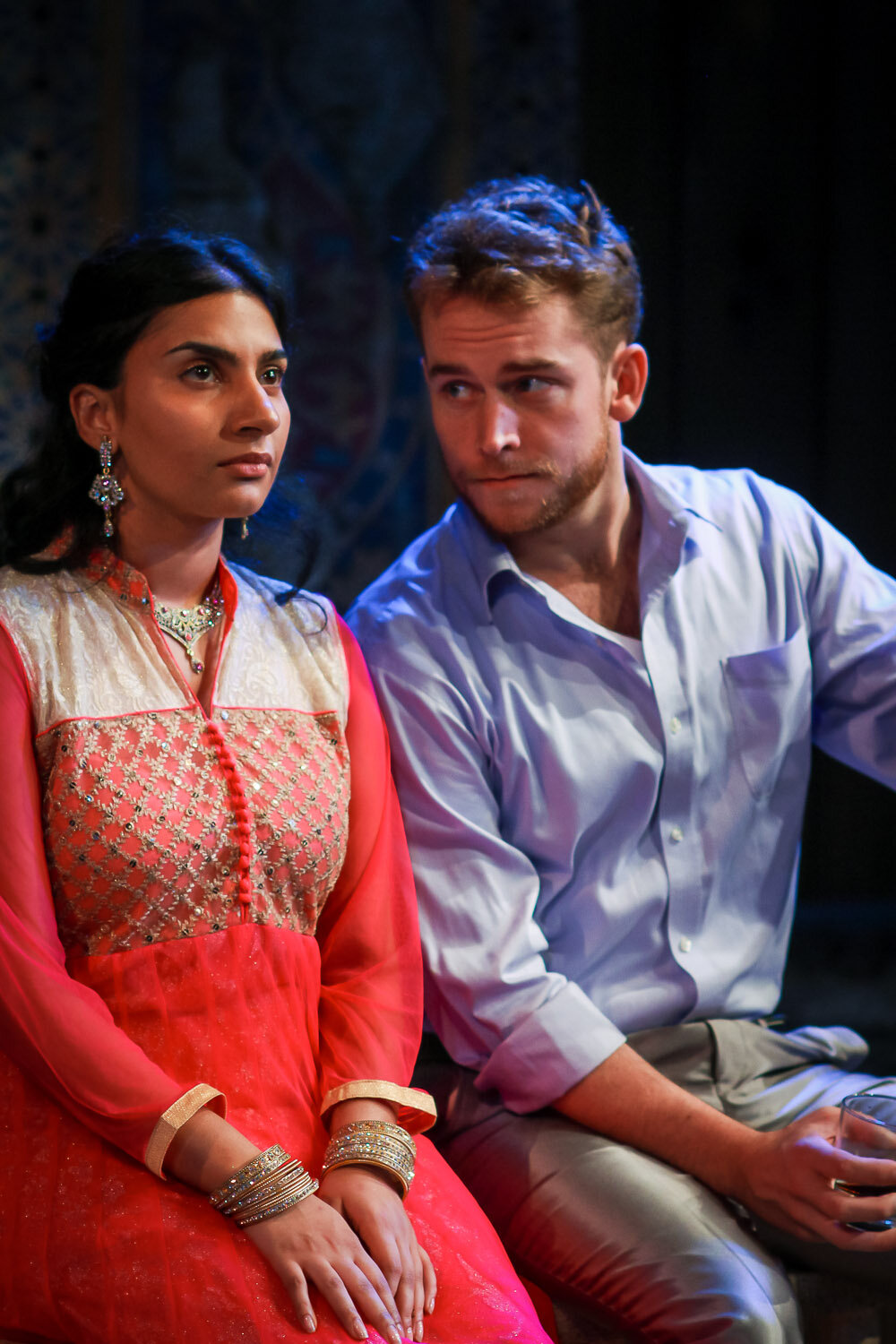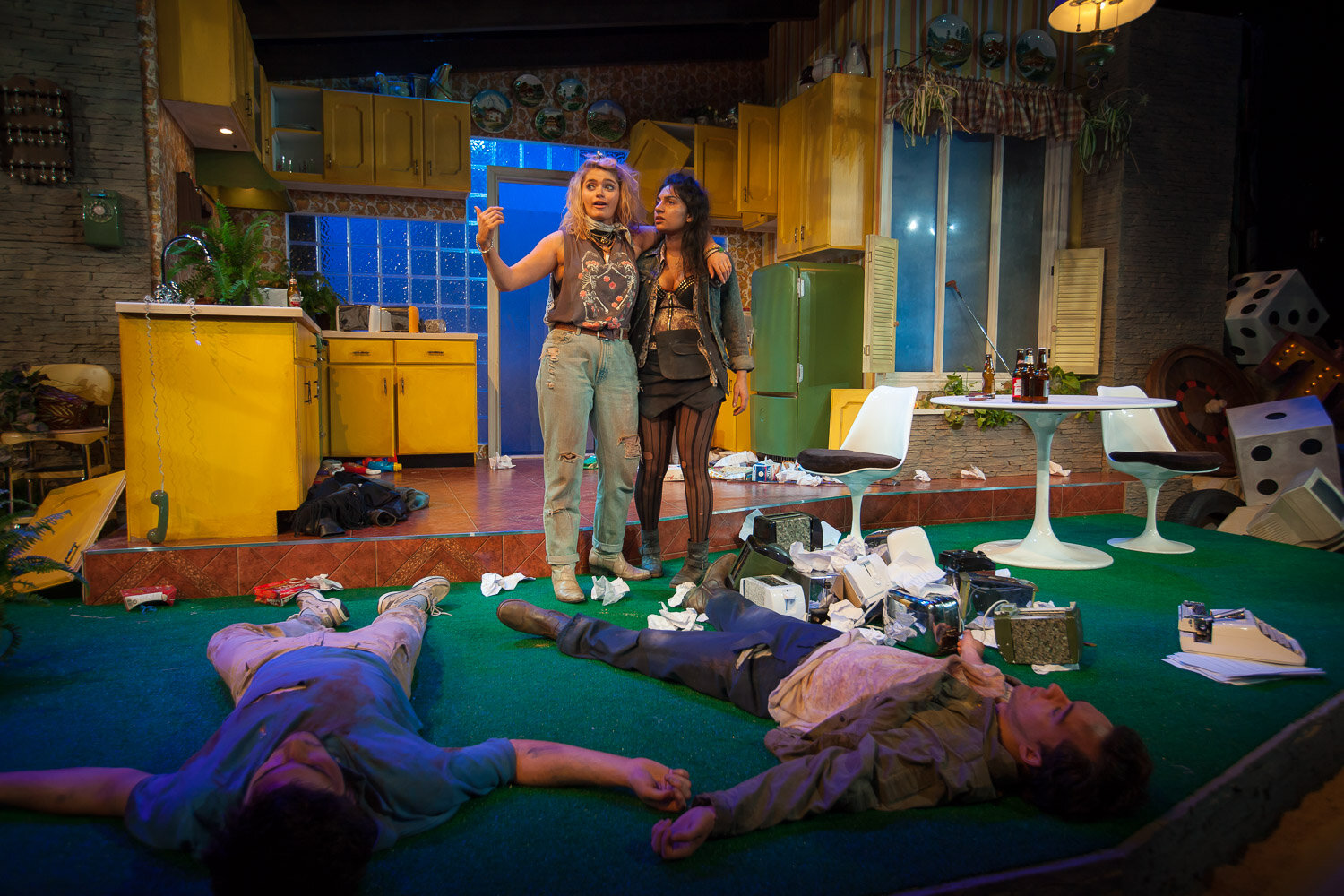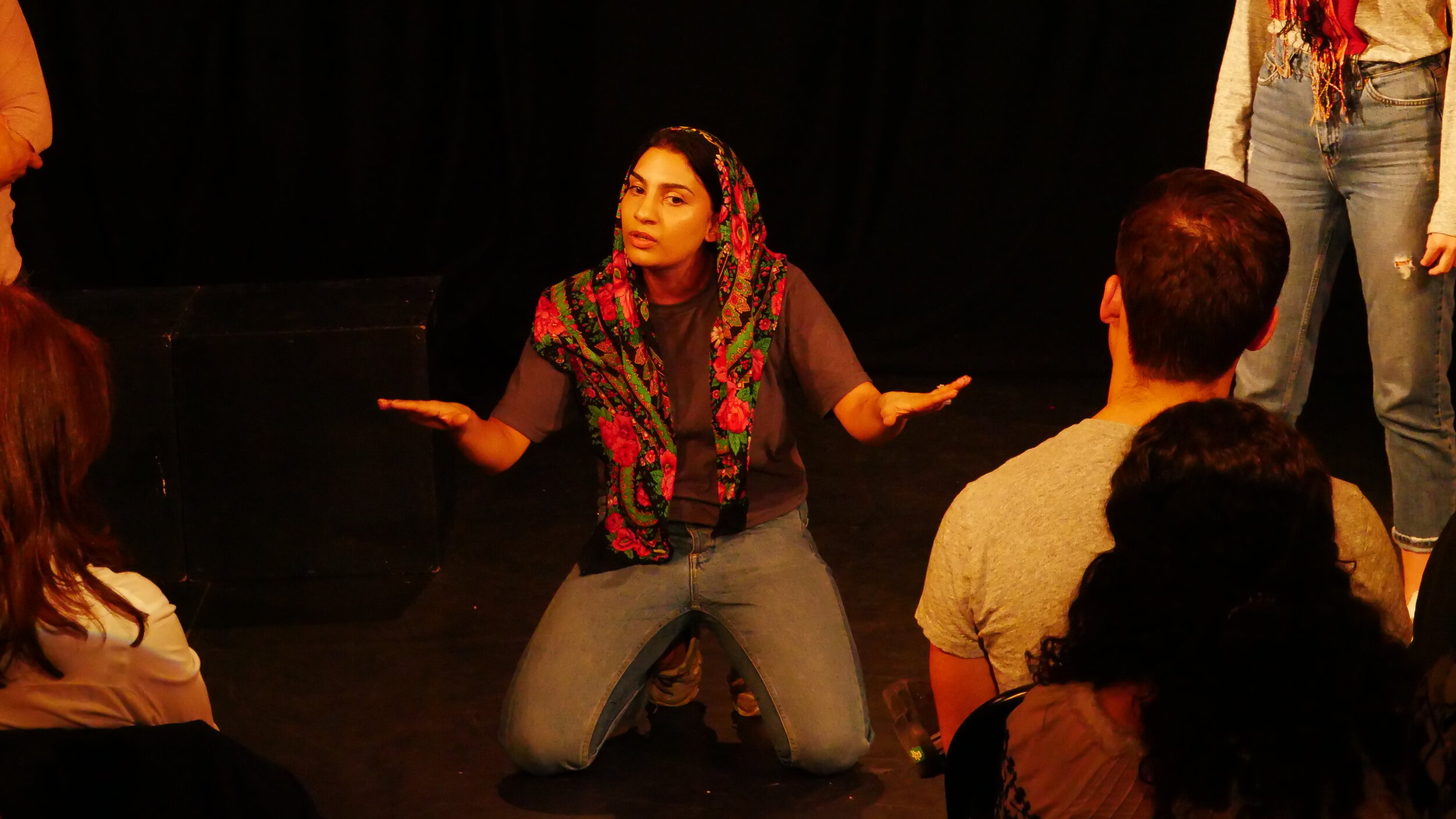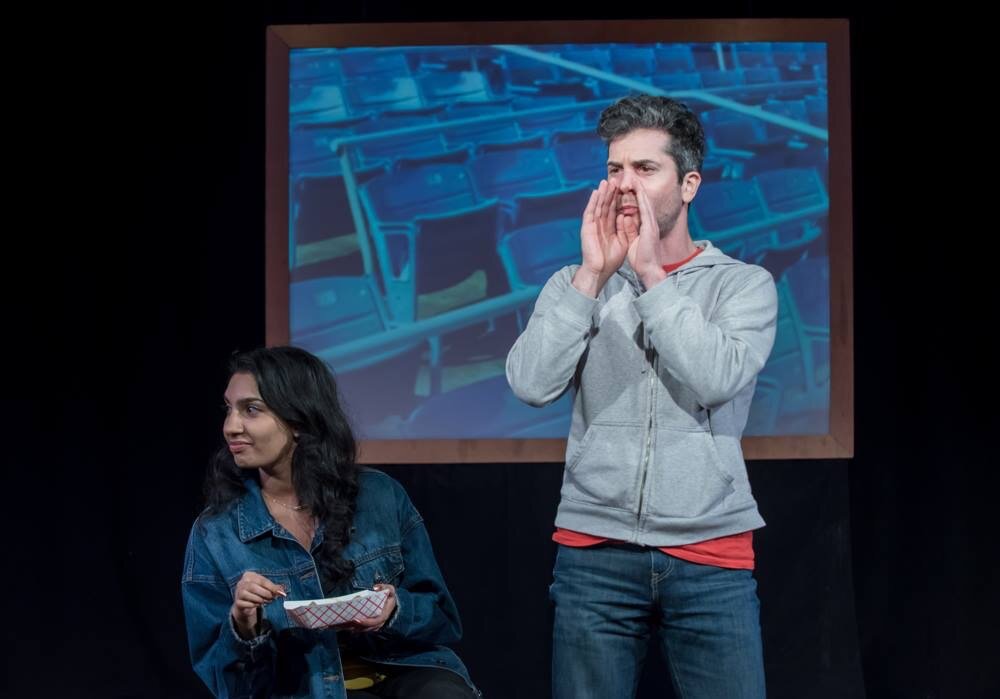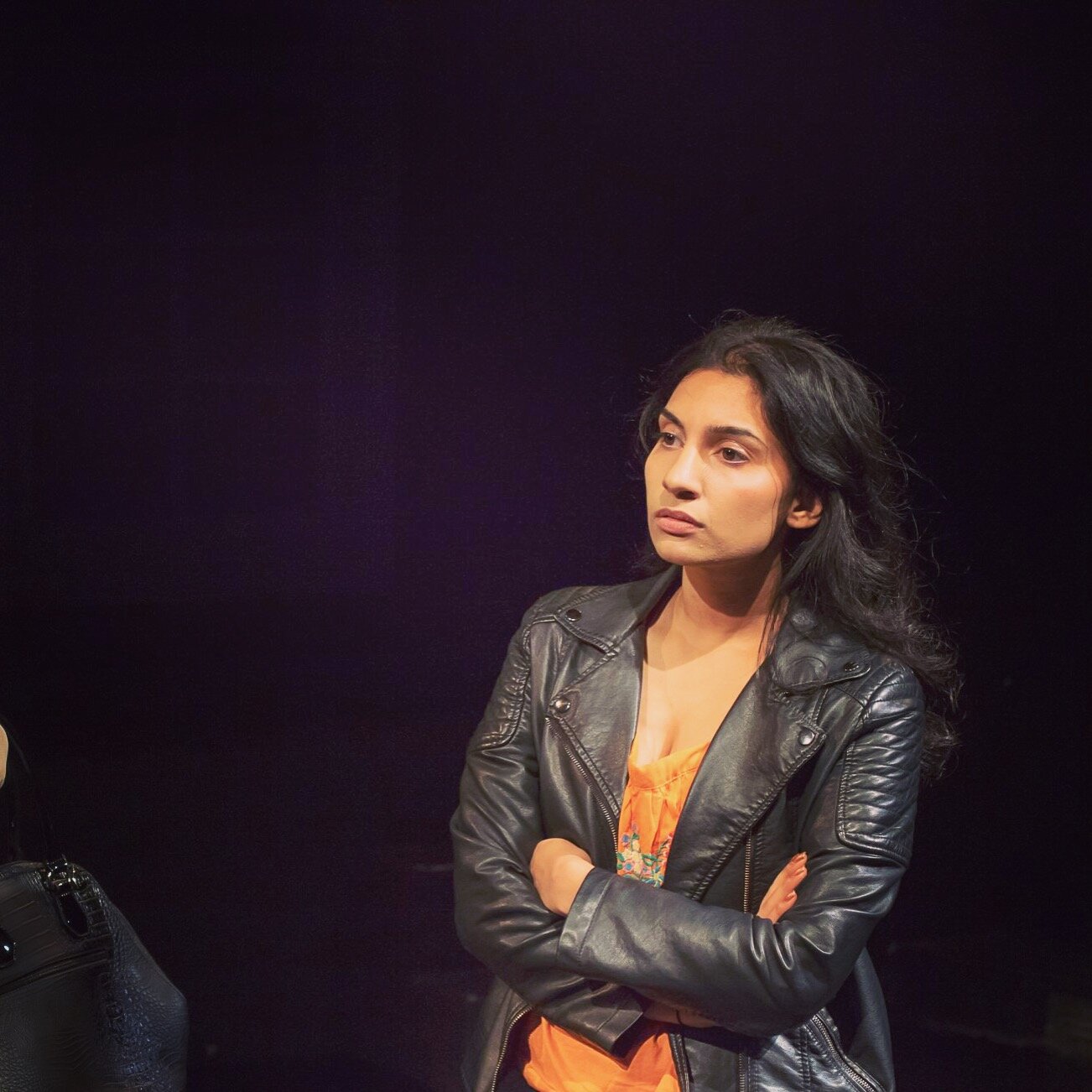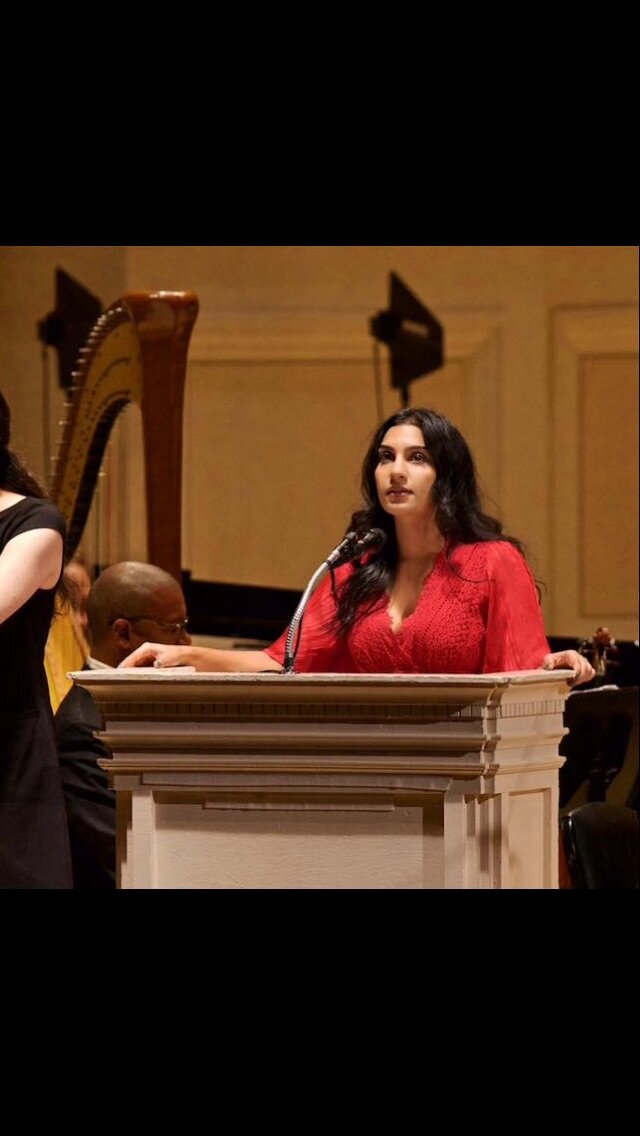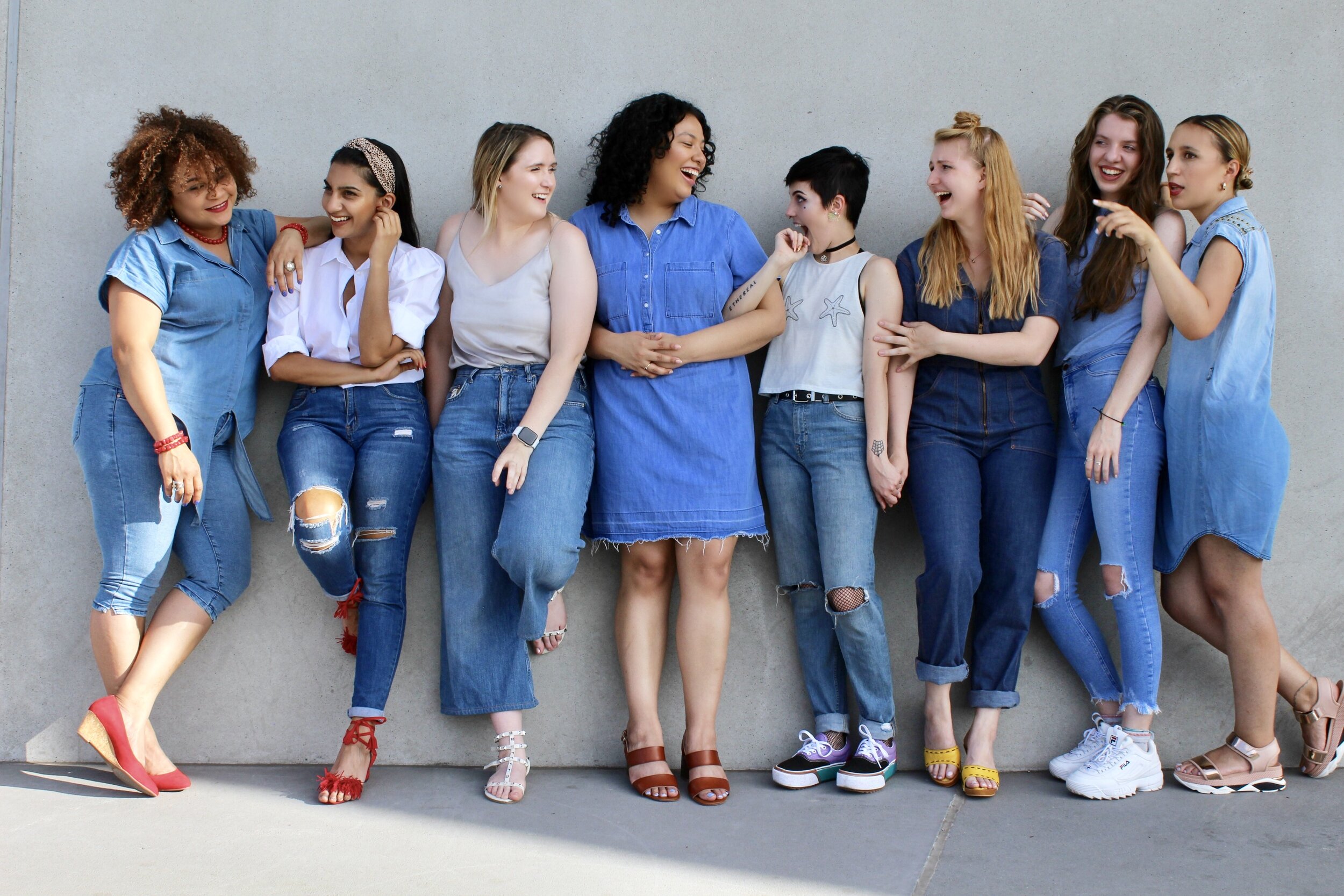Checking Back In With Karen Johal
Actor, Performer
www.instagram.com/karen.johal
EDITOR’S NOTE: The below is a recent check-in we did with Karen (July 2020). The world had evolved so much in the short time since our initial interview, we felt it important to circle back with her and address aspects of this new and ever-changing reality. We can’t thank her enough for her patience, flexibility, and thoughtful honesty throughout this process. If you haven’t done so already, you can read our initial interview with Karen here.
Welcome back! Thank you for joining us again for a quick check-in. This is understandably a loaded question but, how you are feeling these days?
I feel well. It’s been a while since our first interview and a lot has happened in the world since then but I am safe, happy and healthy. Thank you for asking that as well, a lot of people tend to ask what are you doing? As opposed to how are you? Or how is your heart? Which I think is important to highlight. I still have not learned how to cook rice and have just started a new book which I am enjoying.
What's the situation where you are in the UK/Birmingham these days?
We are opening up in the UK slowly. The pubs are open, the high street is open and we’re adjusting like everyone else to what this new world looks like. We’ve lost a lot of lives sadly but the NHS (National Health Service) has been amazing with how it's coping. It is for the most part looking good so far as we’re slowly emerging, so fingers crossed we can continue to keep each other safe. It has been wonderful to be able to finally see my grandparents and friends after months of lock-down as well.
On the flip side of things, the response to the death of George Floyd and the news coverage of the world wide protests for Black Lives Matter was slow at first. I think the British knee jerk reaction was that it was an “American Issue” so it did not apply to us. America is so far away so it gives us this sense that it’s problems are far away from us too. But what I have seen in the last few months is this necessary upsurge in action and activism to call out the systems that are inherently oppressive and racist. I think we are acknowledging that we can’t call systemic racism an “American problem” when similar corrupt systems exist and thrive in the UK and across the world as well.
How are you coping with the effects that COVID-19 has had on the theatre/entertainment industry?
It is a weird time. Sometimes I think you know, it will be okay because theatres will open up eventually but the uncertainty can be daunting. We don’t know when we will be able to go back to film sets or to see live theatre again but I am hopeful that we will. When we do, it will be a spectacular and historic moment to be a part of. One thing I am seeing among people outside of the industry is how much entertainment, in many formats, is cemented into our daily lives. There is now a new appreciation for what we do. Entertainment is truly vast in its media, so much work goes into it and so many people are responsible for what you watch or tune in to. So I am relearning to appreciate how truly extraordinary that is and I feel quite proud to belong to an industry that contributes in this way to the world especially during this time.
On the whole I am coping well with all the uncertainty. It's been an adjustment for sure as someone who likes to plan and be organized but it's been liberating in a way to take a break from the rat race. If anyone is prepared or adept at being out of work and thriving, it's artists right?
What are the changes you're seeing/experiencing in the industry as a result the recent events?
At first I think the industry was quick to adapt to this pandemic, adjusting to Zoom readings and FB (Facebook) live theater and if there are any auditions they have moved predominantly to self tape submissions or voice over work. So I have seen changes in that respect but it will get harder to sustain operating in this way for a longer period of time especially for live theater. In my home town, the Birmingham Hippodrome Theatre has been hit particularly hard. It's the largest theatre in the city and one the best we have. I used to work for them before I moved to New York years ago, so it is really sad and unnerving to see it struggling to reopen. There are a lot of jobs and a lot of amazing people who work there who are now facing uncertainty about their livelihood. The most humbling thing to see is how beloved live theatre is and how much people have rallied to save it.
It is a momentous time of awakening for the industry too. What I have seen are numerous theatres, schools, production companies and brands, etc. releasing statements or changing their ethos in response to how they may have contributed to systemic racism in the past, which I think is a great first step. Some of these institutes have been complicit and allowed injustices to go on for too long and now they are being called out and actually listening to the criticism they are facing. It is easy to join a movement when it's trendy and serving you in the moment so the “call out” culture is really effective in its ability to stop inequality in its tracks, which excites me for when the industry begins to operate at full capacity. We hopefully will see a cull of all the things we let slide before to make room for a new and brighter future with work that is representing a true reflection of society.
Speaking to that a little more, my experience in the industry will always be altered by the fact that I am a woman of colour. I can’t change that about myself, and the way I move through the world is different. When I look for auditions there are significantly less roles available to me and even more so for other minorities. If I look at auditioning for period plays I instantly count myself out because I think that my casting would not make sense for historic continuity or if I want to play the role of the sister to the lead, I am already counting myself out because I know that it will be harder for a production to find actors who look like me. These thoughts probably never cross the minds of my white colleagues because space is being made for them in a way that makes them the default for casting and makes people of colour the alternative. The people producing and casting have to make that choice in order to make room for people of colour or tell more stories about people of colour. The majority of space anywhere is white, which is not a negative thing but there is nothing fair about having to adjust to the state of things just because that's the way they have always been. I don’t let the state of the world become a hindrance to my work because that does not serve me or anyone else who looks like me. Where I can, I make space for myself to move as freely as possible in these spaces that are not designed for me, it motivates and stimulates the work in a way that is necessary.
I once had a comment from a teacher in school who said that my casting type would be “young professional or doctor”. The assumption was made based on what I look like and not my acting ability. I was also miscast in my graduation play in a role meant for a black actress and again that decision was made by someone who viewed my ethnicity as interchangeable. I was the only British student of Indian descent in my graduating class and I have worked consistently since graduating in roles that I earned based on my ability. I have never felt deterred from working because of someone else's thoughtlessness. It is much harder for people of colour to move through the world full stop, so the industry is no different but I deserve to occupy these spaces just as much as anyone else. So moving through these predominantly white spaces and not letting fear or prejudice govern my career is imperative and just as important as the work itself.
What, if any, do you think the theatre/entertainment community's responsibility is moving forward?
I don’t think there is a “one size fits all'' solution because the way forward means making a lot of mistakes and being okay with that, which is difficult because it means addressing things that make most people uncomfortable. As a Brit I can definitely vouch for sometimes getting overwhelmed by something I am passionate about. I get in over my head emotionally and don’t say anything but it is important to power through that. It is our own individual responsibility to make a change where we can, with our conversations and with our choices and most importantly what we put out into the world. Whether that is with our social media or with our energy. A lot of the responsibility is down to individuals in places of authority too, who have the power to put stories on the stage or on film.
Whenever I see someone on television or on stage who looks remotely Indian, I research them. I get giddy and excited and proud to see someone who looks like me. (I may find out that they are actually Armenian but still). That is the reaction of someone who is underrepresented, it incites this feeling of being seen in a place that is unattainable. When I first moved to New York for school my grandfather said to me he couldn't see that many Indians on Television so he thought it would be hard to establish a career after graduating. When I visited after graduation he said “Now there's too many!”. The development of the industry in those three years made such a difference, we had visibility in a way that we did not before so continuing with that in mind could make a huge difference.
What do you feel isn't being talked about enough?
There are 101 topics not being discussed enough, we should never feel satisfied with how much we’ve talked about a topic especially when it comes to fighting for equality for everyone. I think about predominately addressing issues in my own community with South Asian Culture. Colorism is a huge, ingrained problem that we just dismiss because it's always been the way things are. I am a light skinned Indian woman so that comes with privileges among the South Asian community which is something I didn't really register actively before. Addressing these things as someone who the game is rigged for is so important.
One thing I found baffling about how other minorities were reacting to the Black Lives Matter movement was that it is perceived as the responsibility of white people to eradicate racism. It’s not. Other ethnic minorities are not exempt because we have experienced racism, if anything that puts more skin in the fight. We need to be fully transparent in our efforts everyday, that is through conversations and on social media and calling out hypocrisy. My feed has been inundated with people posting performatively and mixing the posts among their bikini photoshoots so we don't catch them out for being insensitive and that is counterproductive. Our priorities have shifted as this has become so prevalent and I am starting to see who is truly authentic about their actions and the way in which they express themselves on social media. The way you take up space and what you use it for says a lot about who you are and where your heart is. We can never talk enough about what we can do to help with any topic, it is not a one stop destination to a place of peace, it's a continuation. Making mistakes is a key part of that.
Who are the storytellers/artists/activists you’re following or paying attention to?
Ahh there are so many! I am constantly watching, reading and consuming something at any given time. It all adds to the collection and I think diversifying what you consume is important too. There are so many formats out there that I am now learning so much more than I ever did in school! Which is brilliant and it's a never ending educational journey.
Munroe Bergdorf is an amazing Trans activist who I follow: she is a highly intelligent and articulate person when it comes to speaking about activism. She truly is moving in an authentic and uncompromising way and taking up space on social media to occupy and rally for causes that are so important to the Trans and LGBTQ+ community.
I also highly recommend listening to Jameela Jamil’s I Weigh podcast, she explores mental health mainly and the feeling of “shame” with her guests. I have been following her for years and I think the key thing with her is transparency. She opens up about her own experiences and challenges a lot of celebrity bullshit which I love. We are now in a time where celebrities can directly speak to us, so what they are saying can be dangerous. Jameela calls that out so that you can see the whole picture and not just the edited, photoshopped, profitable version that they want you to see.
I also recently finished watching Michaela Coel’s new series I May Destroy You on BBC/HBO Max. I cannot recommend it enough, It’s indescribable. It’s bold and complex and does not go where you expect it to, I spent half the time watching by reacting to it viscerally/laughing/crying/gasping. It's brilliant and she is an inspiring person who is really making a way for new writers by again offering transparency.
I think whatever you consume and learn you also have to edit and censor as well. Social media makes it so easy to find things that trigger you even if you are not looking. Everything is amplified so your anxiety and insecurity can heighten if you expose yourself to those things on your feed. I have tried myself to mute/unfollow the people that take up free space in my brain with things that don’t inspire me. I have even found that some of the most inspiration comes from my other friends experiencing the same issues with how we consume and supporting your friends is free! We’re in this amazing brilliant time with technology where we have some control over the things we do and say so why not put yourself in the way of beauty.
What is bringing you joy or solace in these ever-evolving times?
I am finding joy in conversations, in socially distanced BBQ’s with my friends, in cooking. These precious moments now feel imperative to counteract how much evil there is in the world. It can get overwhelming as an empathetic person to shut out how much we don’t have control over so by committing to small acts of love I am doing the most.
I now feel like there is solace in quiet moments, in not questioning the existence of something or the presentation of hardship because you truly are where you are supposed to be at any given moment. We have spent months without so much that we thought we needed to live happily. When our livelihood is taken away what we are left with if we are lucky are our friends or our family, those things show us what matters most. I feel ever present now and don’t want to miss a second of any moment with the people I love and that is so far away from an idealised version of what we think happiness is. I get to hug my mother everyday and talk to my best friends from across an ocean which is amazing and truly envelopes me in a sense of love and joy.
I also find solace in iced coffee, we get around 60 days of sunshine in England a year. There is nothing like that first sip of iced coffee in my parent’s little English garden, while my dog is trying to fight me for a piece of toast.

